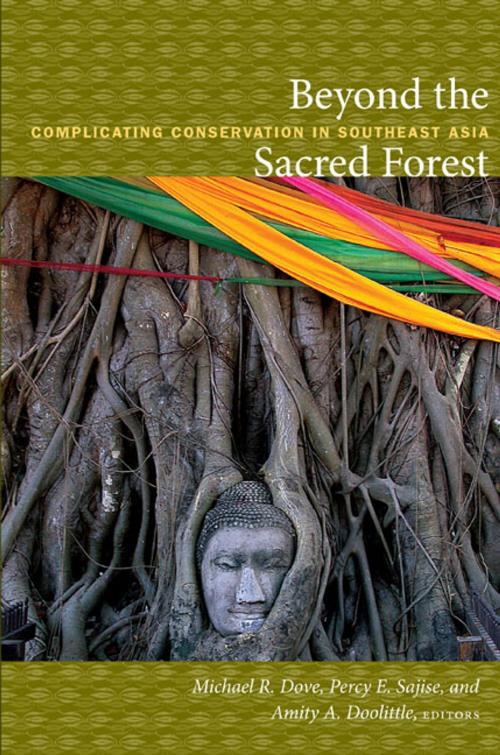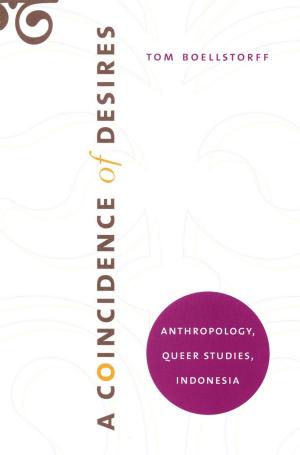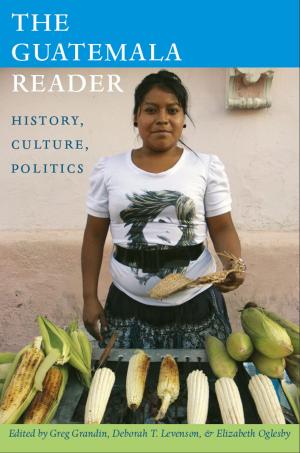Beyond the Sacred Forest
Complicating Conservation in Southeast Asia
Nonfiction, History, Asian, Southeast Asia, Science & Nature, Science, Biological Sciences, Environmental Science, Social & Cultural Studies, Social Science, Anthropology| Author: | Arturo Escobar, Dianne Rocheleau | ISBN: | 9780822393078 |
| Publisher: | Duke University Press | Publication: | April 14, 2011 |
| Imprint: | Duke University Press Books | Language: | English |
| Author: | Arturo Escobar, Dianne Rocheleau |
| ISBN: | 9780822393078 |
| Publisher: | Duke University Press |
| Publication: | April 14, 2011 |
| Imprint: | Duke University Press Books |
| Language: | English |
Reflecting new thinking about conservation in Southeast Asia, Beyond the Sacred Forest is the product of a unique, decade-long, interdisciplinary collaboration involving research in Indonesia, Malaysia, and the Philippines. Scholars from these countries and the United States rethink the translation of environmental concepts between East and West, particularly ideas of nature and culture; the meaning of conservation; and the ways that conservation policy is applied and transformed in the everyday landscapes of Southeast Asia. The contributors focus more on folk, community, and vernacular conservation discourses than on those of formal institutions and the state. They reject the notion that conservation only takes place in bounded, static, otherworldly spaces such as protected areas or sacred forests. Thick with ethnographic detail, their essays move beyond the forest to agriculture and other land uses, leave behind orthodox notions of the sacred, discard outdated ideas of environmental harmony and stasis, and reject views of the environment that seek to avoid or escape politics. Natural-resource managers and policymakers who work with this more complicated vision of nature and culture are likely to enjoy more enduring success than those who simply seek to remove the influence and impact of humans from conserved landscapes. As many of the essays suggest, this requires the ability to manage contradictions, to relinquish orthodox ideas of what conservation looks like, and to practice continuously adaptive management techniques.
Contributors. Upik Djalins, Amity A. Doolittle, Michael R. Dove, Levita Duhaylungsod, Emily E. Harwell, Jeyamalar Kathirithamby-Wells, Lye Tuck-Po, Percy E. Sajise, Endah Sulistyawati, Yunita T. Winarto
Reflecting new thinking about conservation in Southeast Asia, Beyond the Sacred Forest is the product of a unique, decade-long, interdisciplinary collaboration involving research in Indonesia, Malaysia, and the Philippines. Scholars from these countries and the United States rethink the translation of environmental concepts between East and West, particularly ideas of nature and culture; the meaning of conservation; and the ways that conservation policy is applied and transformed in the everyday landscapes of Southeast Asia. The contributors focus more on folk, community, and vernacular conservation discourses than on those of formal institutions and the state. They reject the notion that conservation only takes place in bounded, static, otherworldly spaces such as protected areas or sacred forests. Thick with ethnographic detail, their essays move beyond the forest to agriculture and other land uses, leave behind orthodox notions of the sacred, discard outdated ideas of environmental harmony and stasis, and reject views of the environment that seek to avoid or escape politics. Natural-resource managers and policymakers who work with this more complicated vision of nature and culture are likely to enjoy more enduring success than those who simply seek to remove the influence and impact of humans from conserved landscapes. As many of the essays suggest, this requires the ability to manage contradictions, to relinquish orthodox ideas of what conservation looks like, and to practice continuously adaptive management techniques.
Contributors. Upik Djalins, Amity A. Doolittle, Michael R. Dove, Levita Duhaylungsod, Emily E. Harwell, Jeyamalar Kathirithamby-Wells, Lye Tuck-Po, Percy E. Sajise, Endah Sulistyawati, Yunita T. Winarto















